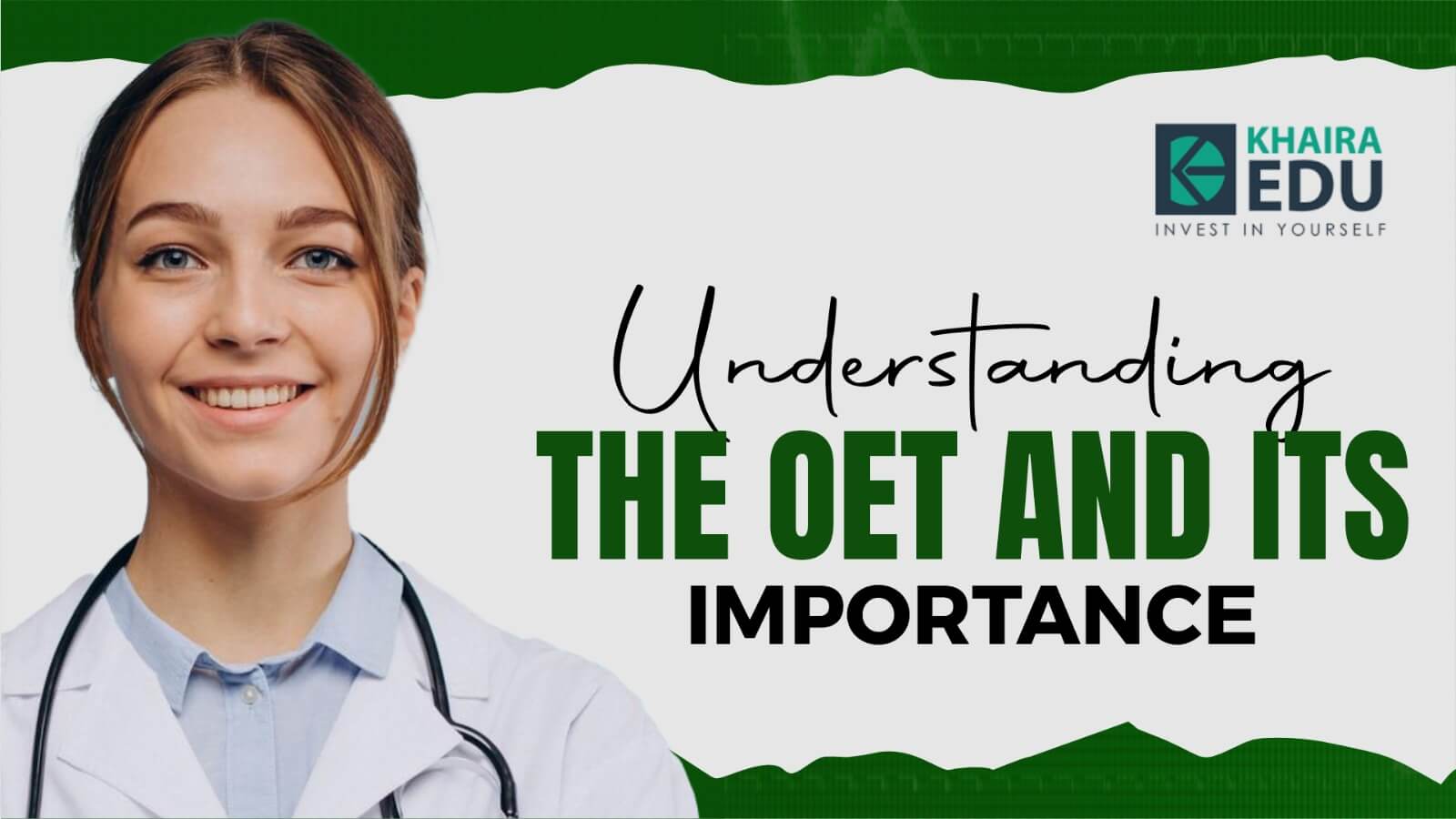For healthcare professionals planning to work in countries like Australia or New Zealand, language proficiency is a critical requirement. The Occupational English Test (OET) has emerged as the preferred choice for nurses, doctors, dentists, pharmacists, and other medical practitioners. Designed specifically for the healthcare sector, OET not only evaluates English skills but also ensures candidates can communicate effectively in medical contexts.
If you are looking for the best OET coaching centre to help you achieve your goals, understanding why OET is more aligned with your profession is the first step.
OET’s Healthcare-Focused Content
Unlike general English exams, OET is tailored for the healthcare industry. All reading, writing, listening, and speaking tasks are based on real-life medical scenarios. This means that nurses, doctors, and other healthcare workers are tested on language that directly relates to their day-to-day duties.
For example:
- A nurse might be asked to write a referral letter for a patient.
- A doctor may have to explain a diagnosis in simple terms to a patient.
- Pharmacists might interpret prescriptions or explain dosage instructions.
This relevant, role-based testing ensures that candidates aren’t just passing an English test—they’re proving they can communicate safely and effectively in their workplace.
OET Improves Workplace Communication Skills

One of the biggest advantages of OET preparation is that it improves practical communication skills. The speaking test is designed to reflect professional-patient conversations, helping candidates build confidence in situations such as:
Taking patient histories
- Giving discharge instructions
- Explaining treatment plans
- Responding to patient concerns
Healthcare workers who prepare for OET often find they can apply these skills immediately in their jobs, whether in a hospital, clinic, or community healthcare setting in Australia or New Zealand.
Recognition in Australia & New Zealand
For those planning to work overseas, recognition matters. The OET is widely accepted by:
- AHPRA (Australian Health Practitioner Regulation Agency)
- NCNZ (Nursing Council of New Zealand)
- Medical boards and licensing authorities across both countries
Because the test is designed for healthcare contexts, it is seen as a direct measure of workplace readiness—something general English exams cannot fully provide.
More Confidence in the Exam Environment

Many candidates find OET less stressful because they are familiar with the subject matter. Instead of reading random topics like technology or tourism, they engage with medical documents, case notes, and patient dialogues.
This familiarity often leads to:
- Lower anxiety levels during the test
- Better comprehension of the tasks
- Higher motivation during preparation
When you prepare for OET with experienced trainers at a top OET coaching centre, you benefit from targeted practice that directly mirrors what you’ll face in the real exam.
OET Writing: Tailored to Medical Communication
One of the biggest challenges in language exams is the writing section. In OET, the writing task is profession-specific.
- Nurses may write a transfer letter for a patient moving to another facility.
- Doctors might write a referral to a specialist.
- Physiotherapists could prepare a progress report for a referring doctor.
This means you’re tested on formats and terminology you already use in your career, making preparation more relevant and efficient.
Listening Skills for Real-Life Scenarios

In OET Listening, audio recordings include consultations, health seminars, and hospital briefings—exactly the kind of listening situations you’ll encounter at work.
OET training helps you:
- Understand various accents (Australian, New Zealand, British, etc.)
- Follow conversations in noisy or fast-paced environments
- Pick out key information relevant to patient care
This practical focus makes OET a powerful tool for healthcare professionals aiming to succeed in English-speaking workplaces.
Speaking Role-Plays Build Professional Confidence
In OET Speaking, candidates take part in role-plays with an examiner acting as a patient or caregiver. This helps you practice:
- Clear communication under time pressure
- Empathy and patient-friendly language
- Explaining technical information in simple terms
OET speaking preparation is particularly valuable for overseas-trained nurses and doctors who need to adapt their communication style to meet Australian and New Zealand standards.
OET Helps with Cultural Adaptation

Working in healthcare overseas requires not just language proficiency, but also cultural understanding. OET materials often include:
- Patient expectations in different cultures
- Polite forms of address
- Sensitive ways of discussing health issues
By the time you complete an OET preparation course, you’ll have a better grasp of how to communicate respectfully and effectively with patients in your target country.
Best Way to Prepare for OET
Success in OET requires more than just good English skills—it needs exam strategy, medical vocabulary, and targeted practice. Choosing the best OET coaching centre ensures you get:
- Personalised feedback on writing and speaking
- Practice tests based on real exam patterns
- Guidance from trainers experienced in healthcare communication
Online OET courses are especially helpful for nurses and doctors in remote areas or those working full-time, as they offer flexibility without compromising quality.
Conclusion
For healthcare professionals aiming to work in Australia or New Zealand, the OET is not just another English test—it’s a career gateway. Its healthcare-specific format, real-world relevance, and recognition by professional bodies make it the most suitable choice for nurses, doctors, and other medical practitioners.
By preparing with the right strategies and guidance from a trusted OET training provider like Khaira Education, you can improve your chances of passing on the first attempt and start your overseas journey with confidence.





